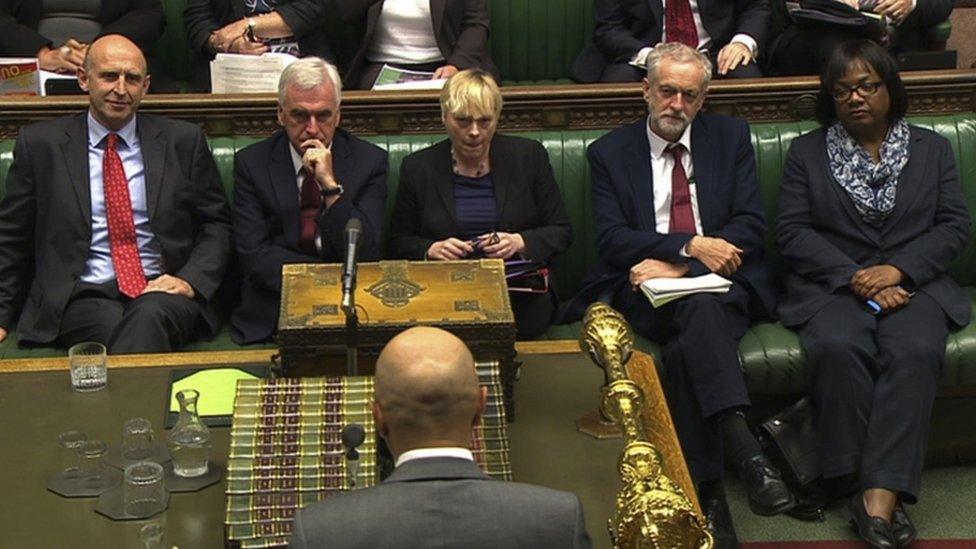Labour peer Baroness Blood 'worries' over Jeremy Corbyn leadership
- Published
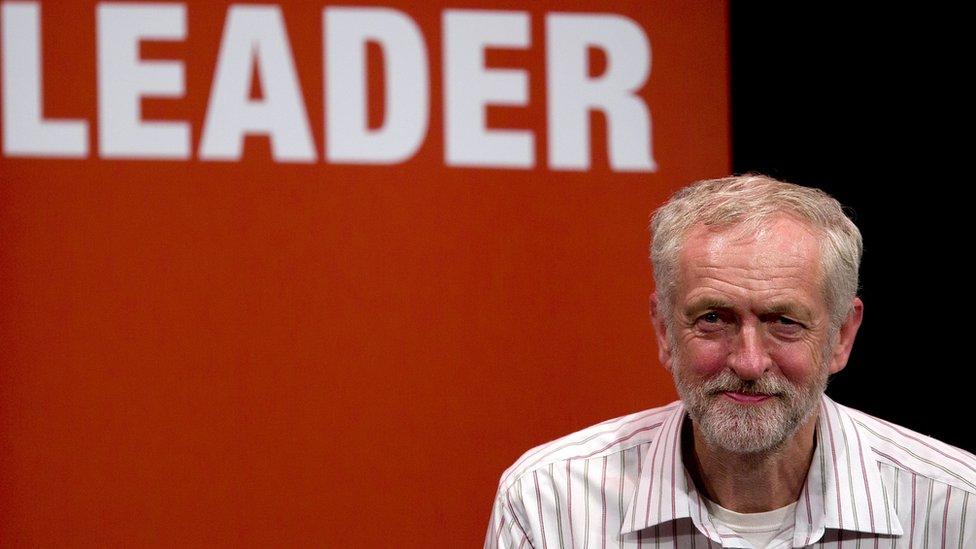
Jeremy Corbyn has been a prominent supporter of Sinn Féin since before the IRA's ceasefire
A Labour peer from Belfast has said she is worried her party may change its stance on Northern Ireland.
Baroness Blood said the election of Jeremy Corbyn as leader and the appointment of John McDonnell "worries me greatly".
Her remarks came after Mr McDonnell was appointed as shadow chancellor as part of Mr Corbyn's Westminster team.
In 2003, Mr McDonnell suggested that IRA members should be "honoured" for taking part in their "armed struggle".
He told a meeting held to commemorate IRA hunger striker Bobby Sands: "It's about time we started honouring those people involved in the armed struggle.
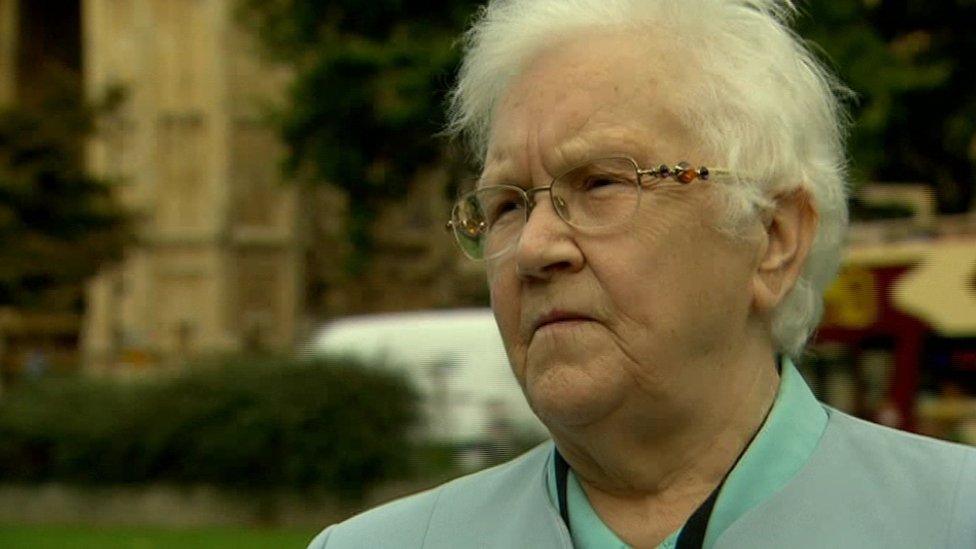
Baroness Blood said she is worried Labour may adopt a more sympathetic approach to republicans
"It was bombs and bullets and sacrifice made by the likes of Bobby Sands that brought Britain to the negotiating table."
On the BBC's Question Time programme on Thursday, Mr McDonnell apologised for the remarks, but said the sentiment behind them had been to help the peace process.
Both he and Mr Corbyn have been prominent supporters of Sinn Féin, and before the IRA ceasefire they controversially met the party on a number of occasions in Westminster during the 1990s.
Baroness Blood told the BBC's The View programme that she is worried the party may now adopt a more sympathetic approach to republicans.
"I would hate to think these people would take us down that road," she said.
But Labour MP Kate Hoey said she did not think Labour's policy of supporting the constitutional status of Northern Ireland would change.
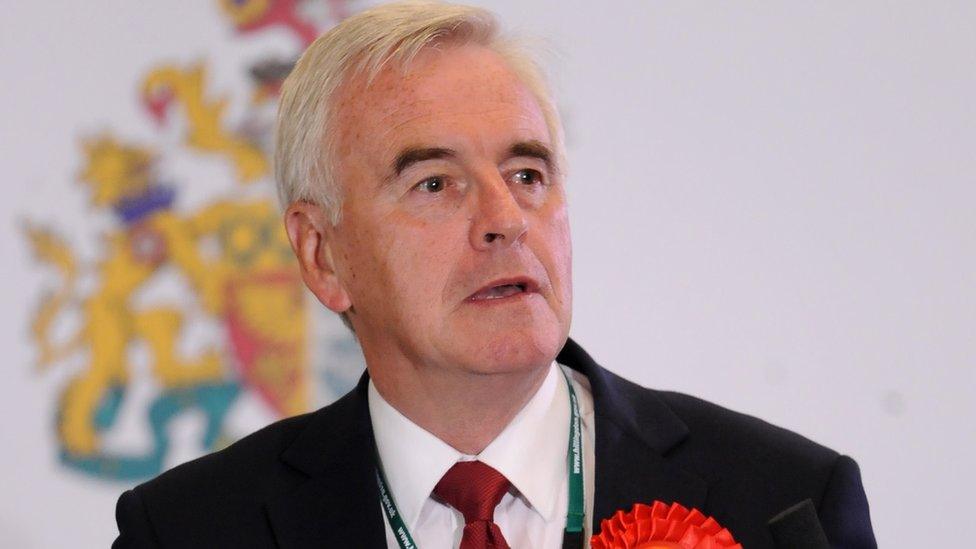
John McDonnell suggested in 2003 that IRA members should be "honoured"
She said: "I don't think unionists and pro-union people have anything to fear."
Much has moved on politically since visits to Westminster by Sinn Féin caused a stir.
Ceasefires and devolution have all changed the political landscape.
The party now has four MPs and has been part of Northern Ireland's power-sharing ruling executive with the Democratic Unionist Party (DUP) since 2007.
Kevin McNamara, who was Labour's Northern Ireland spokesman from 1987 to 1994, when the party backed Irish unity by consent, is untroubled by Mr Corbyn's election.
He said he played a role in changing attitudes, and his meetings and contacts with Sinn Féin were beneficial.
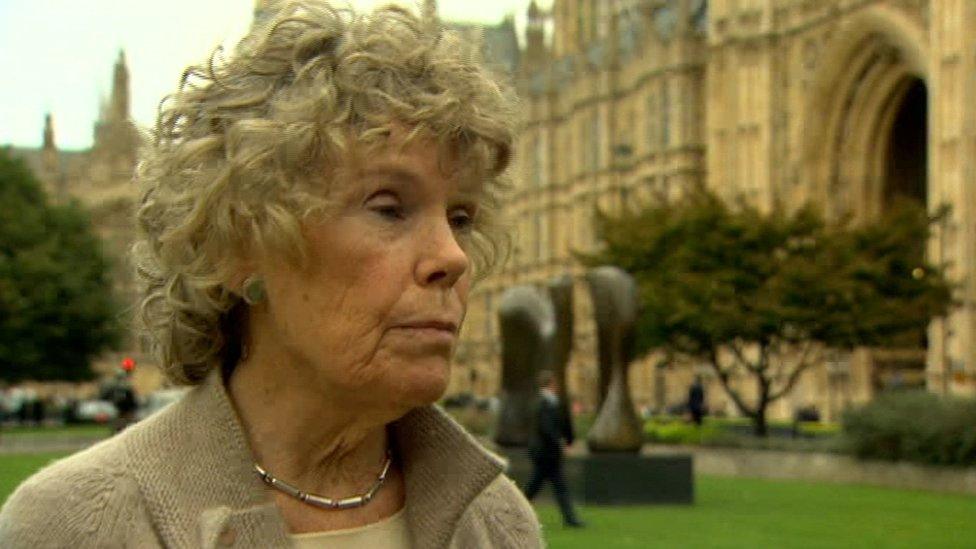
Kate Hoey said the past actions of the Labour leadership would have little bearing on the party's Northern Ireland policy
Mr McNamara said that by meeting Sinn Féin leaders, Mr Corbyn had been "on the whole, constructive", and that he was working to get a "meeting of minds".
He added: that on looking back, the new Labour leader was "ahead of his time".
Ms Hoey said she believed the past actions of Mr Corbyn and Mr McDonnell will have little bearing on the party's Northern Ireland policy.
The re-appointment of Vernon Coaker as the shadow Northern Ireland secretary indicated that Mr Corbyn has no intention of changing the party's position, she added.
Mr McDonnell's comments in 2003 are now back in the headlines and resurfaced as Mr Corbyn made his first appearance as Labour leader during prime minister's questions on Wednesday.
Prime Minister David Cameron was asked by the DUP MP Nigel Dodds if he would condemn Mr McDonnell's remarks and stand "on behalf of the innocent victims and for the bravery of our armed forces who stood against the terrorists."
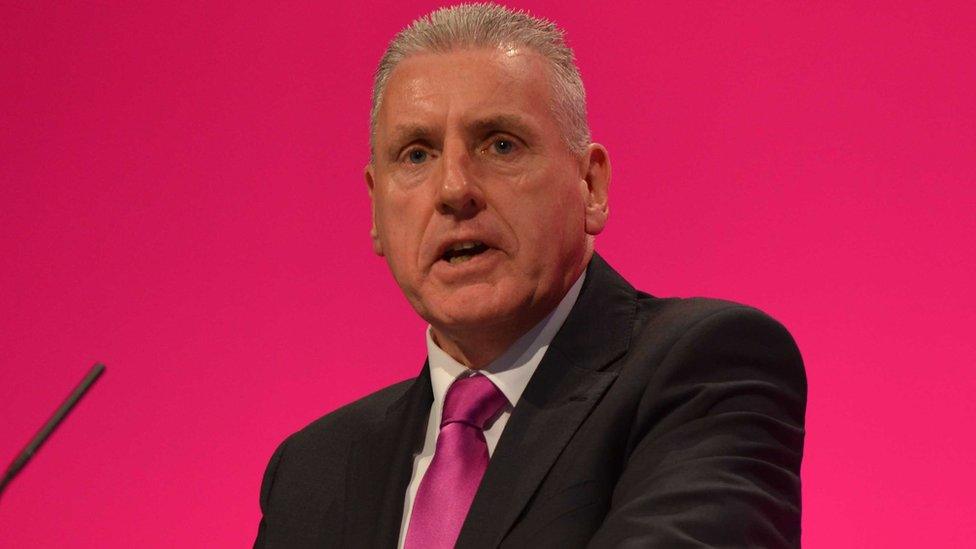
Vernon Coaker's re-appointment is a sign Labour will not be changing the party's position on Northern Ireland, Kate Hoey said
Mr Cameron said the shadow chancellor should be "ashamed" of the comments.
Mr McDonnell said the comments had "clearly" caused offence and apologised "from the bottom of my heart".
But the Labour MP said his remarks were intended to help "hold on to the peace process".
He added that his choice of words had been wrong.
He also told The Guardian that he "abhorred" the loss of civilian life.
Stephen Walker's full report will be broadcast on The View on BBC One Northern Ireland at 22:35 BST on Thursday 17 September.
- Published18 September 2015
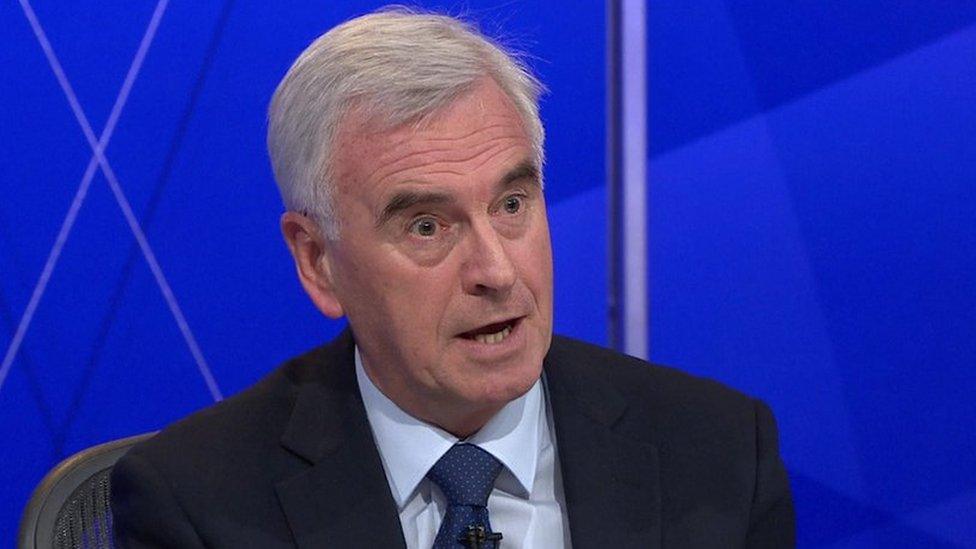
- Published16 September 2015
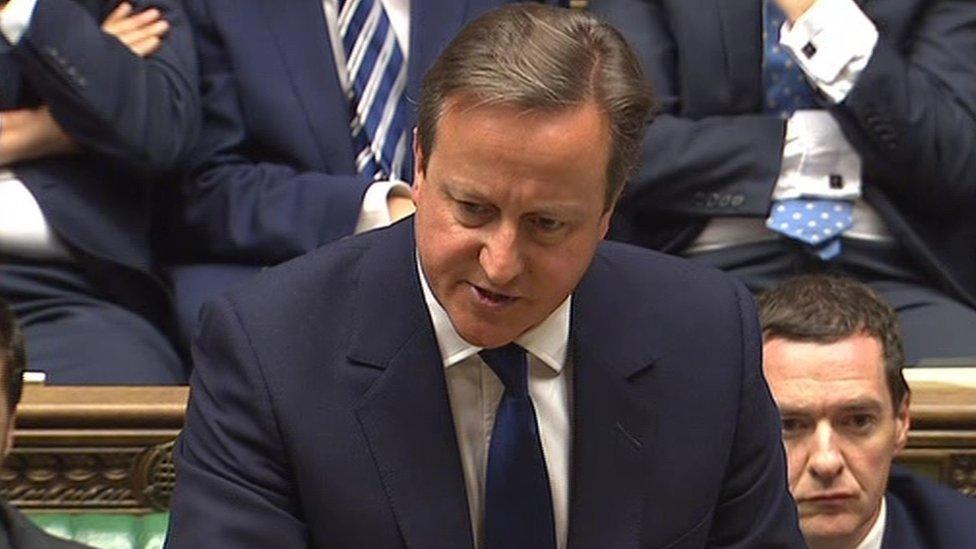
- Published14 September 2015
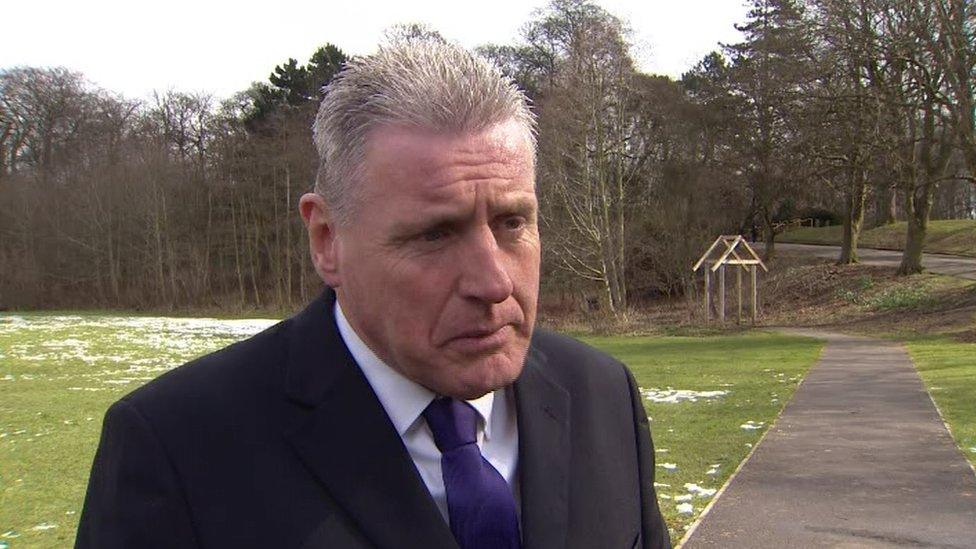
- Published14 September 2015
